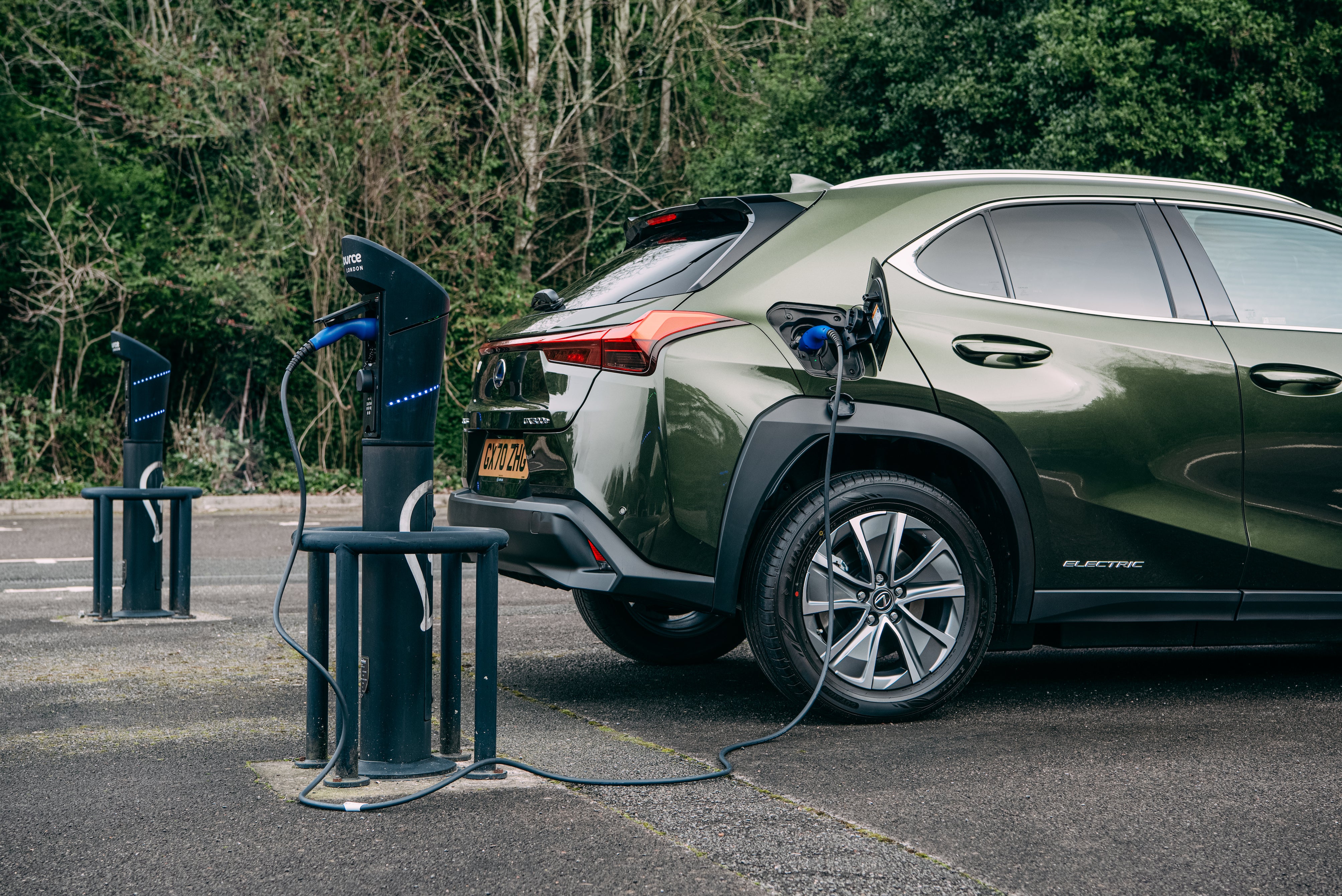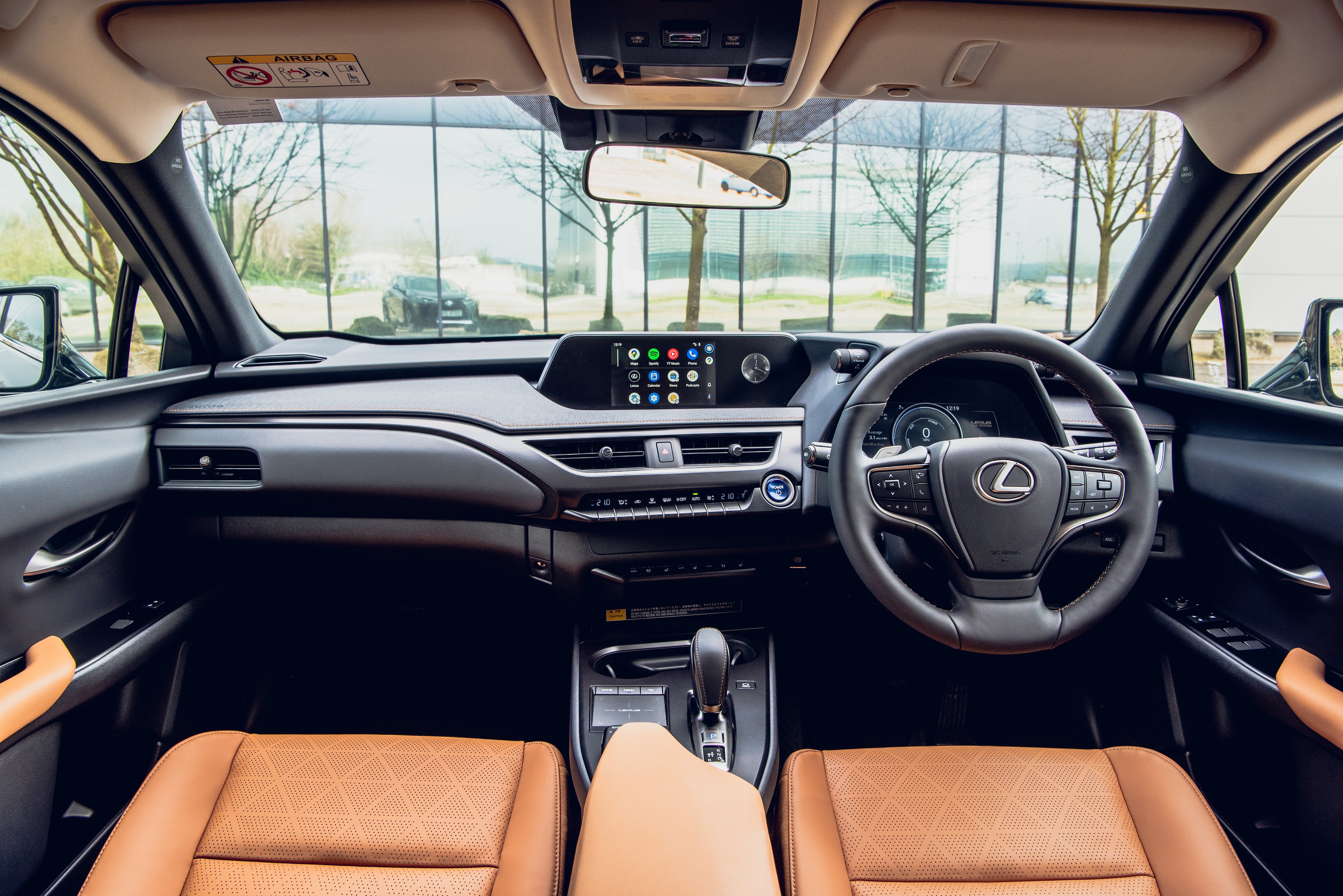Lexus UX 300e: A little too much range anxiety
It’s a Lexus and it’s electric, and that is a fairly potent combination from the point of view of reliability, long experience in lithium-ion battery and, above all, refinement, writes Sean O’Grady


Your support helps us to tell the story
From reproductive rights to climate change to Big Tech, The Independent is on the ground when the story is developing. Whether it's investigating the financials of Elon Musk's pro-Trump PAC or producing our latest documentary, 'The A Word', which shines a light on the American women fighting for reproductive rights, we know how important it is to parse out the facts from the messaging.
At such a critical moment in US history, we need reporters on the ground. Your donation allows us to keep sending journalists to speak to both sides of the story.
The Independent is trusted by Americans across the entire political spectrum. And unlike many other quality news outlets, we choose not to lock Americans out of our reporting and analysis with paywalls. We believe quality journalism should be available to everyone, paid for by those who can afford it.
Your support makes all the difference.Fun fact: aside from some experimental and semi-experimental adventures, the mighty Toyota Motor Corporation, biggest vehicle maker in the planet, hasn’t actually made a series-production internationally-marketed battery electric car. Yes, they’re global pioneers in the hybrid-electric cars, they’ve made the word Prius a virtual generic terms for them, they make more than anyone else, they can also be recharged from the mains – but there’ll always be an internal combustion engine on board, burning fossil fuels. As a company Toyota did extremely well in choosing to push the hybrids, and it has stuck to its guns, even recently dismissing battery electric vehicles, and suggesting that the hydrogen fuel cell (also electric) is the real wave of the future. Until now, that is. Now Toyota is not the car in front, but has realised it’s behind the game, and is putting a bit of effort into joining the rush to develop a full range of battery electric vehicles
So here is the first “proper” BEV from the Toyota group, which has been introduced to consumers with no great fanfare, understandably given its past attitudes. Using Toyota’s luxury brand, the Lexus UX 300e is actually a development of an existing hybrid model, the UX. The badge UX stands for “Urban Explorer” (rather than unexploded) and it’s been around for a few years as a petrol-electric hybrid, based on Toyota Prius mechanicals. It’s a compact luxury SUV, with a modest foothold in the market dominated by the likes of the Mercedes-Benz GLA. Now you can have a BEV version. Should you?
THE SPEC
Lexus UX 300e
Price: £53,500 (range from £43,900)
Battery: 50kWh
Power (hp): 200
Top speed: 100 mph
0-60mph: 7.5 secs
Fuel consumption: 153 mpg (equiv)
CO2: Nil
Yes and no. It’s a Lexus and it’s electric, and that is a fairly potent combination from the point of view of reliability, long experience in lithium-ion battery and electric motor technology, build quality, and, above all, refinement. The company claims that every UX off the production line is “checked in a quiet room where takumi use their finely tuned hearing and touch to detect and rectify any unwanted noise and vibration in the cabin”. Takumi, by the way, means craftsperson, and it “sounds” like a nice job. The UX has an optional fake electric motor sound that comes through the sound system, but if you turn that off it is pretty much silent. So I can well believe that the takumi in Japan are dedicated to upholding the brand’s reputation for smoothness and comfort. I was especially impressed by the heated (front and rear) and ventilated soft leather seats, with excellent adjustment. As an SUV, albeit small and without four-wheel drive or any off-road capability, it has the higher driving position buyers like these days, and is easy to hop in and out of. If you load it up with the option packs it virtually drives itself and you’ll want for nothing. The space packaging is fine for two people, but the battery pack intrudes on the rear passengers’ legroom; best for kids on the rear bench.

Alas, the UX has flaws. The touchscreen works quite well, with sensible additional buttons for easy access to radio and air con, and you can adjust the driving characteristics of the car (for economy or performance, say) via a dial that sticks out of the speedometer (describing it in old fashioned terms). But the touch pad between the front seats that can also controls the screen takes some getting used to. I reckon it’s as safe as any other way of using a screen, but the whole idea of trying to push through menus and tap the right icons while trying to drive is, I think, unsafe and untenable. Car companies have tried far too hard to emulate the iPad, and we’ve got a bit of a case of “emperor’s new clothes” here. Many years ago Lexus was the one luxury brand that persisted with dials and buttons when everyone else was moving towards screens and touch-sensitive controls, and if I was running things I’d go back there.

More grievously, our little electric cube of luxury will take you anywhere in great style, so long as it isn’t that far way. One morning, bright sun in the sky, we decided to take a trip to the coast. The lively attractions and lovely beach at Ingoldmells beckoned. Time was short, as the coast is about 90 miles away, and it would take too long to charge from the indicated 77 per cent of battery power available (fast chargers are great but they deliberately slow down the flow of electricity going into a battery from about 80 per cent to avoid damaging it). The satnav told me the round trip would be 186 miles; the available range was 188 miles. I chickened out, because the margin of error was so narrow, and you couldn’t be sure of finding an electric charging point that was operational in rural east Lincolnshire (despite all the offshore wind farms). So I took my old Skoda Octavia instead, with no steering wheel controls, rear parking camera, 13-speaker Mark Levinson Premium Surround Sound system or any of the UX’s many amenities. Still, we got there and got back, and, indeed, an accident on the A158 (popular with motorbike enthusiasts) had meant a lengthy detour and would have probably left us stranded. My tip for selecting any electric car is to check the range of ranges you’ll actually encounter in the real world using the superb website ev-database.uk. That tells you that the the UX 300e will do between 115 miles (cold weather, motorway driving) and 240 miles (warm weather, city journeys), which I can vouch for. That’s against the broad official Lexus figure of “up to 196 miles”, which is simultaneously too optimistic and too pessimistic (though the available range shown on the dash is fairly accurate). Either way you’d need to adjust for your driving style, as with any car.
The UX 300e, then, like most electric cars has a range and capability undreamt of even a few years ago. Its range and fast recharging will cope with the vast majority of journeys for work or pleasure, but, as I discovered there are exceptions when it’s much more of a risk. What would I have done for my little jaunt if I’d didn’t have an old spare petrol-powered car lying about? Maybe the next Toyota/Lexus will be the electric car in front, but the UX 300e gave me a little too much range anxiety.
Join our commenting forum
Join thought-provoking conversations, follow other Independent readers and see their replies
Comments